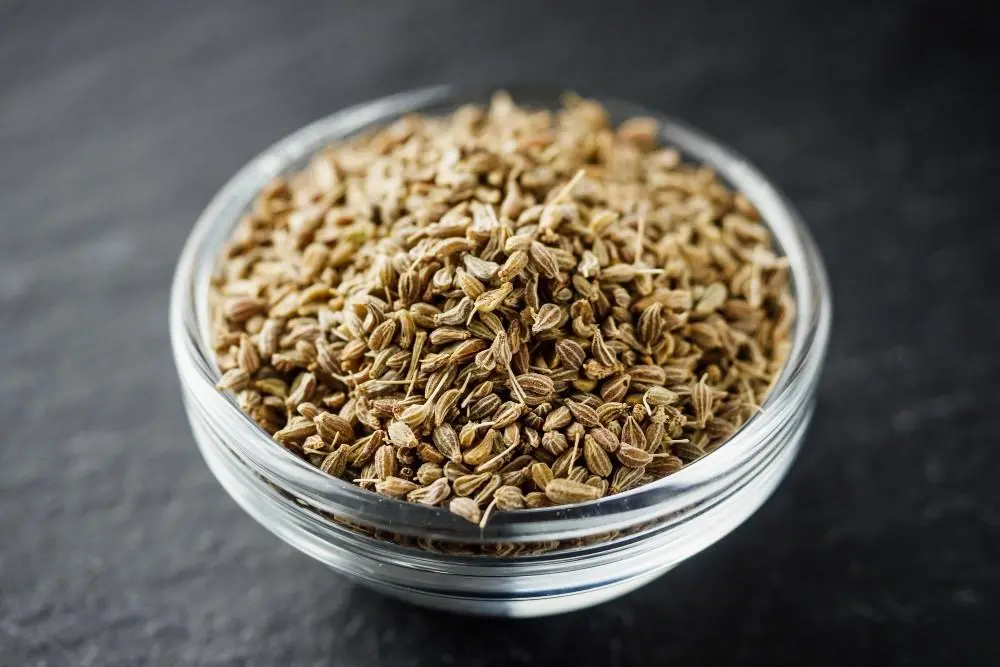The kitchen was alive with warmth. The iron pan sizzled as Ajwain seeds hit its surface, releasing a sharp, thyme-like aroma that filled the room. Grandmother smiled knowingly—she had roasted these seeds countless times before, folding them into spice blends that carried the memory of generations. For the family, these golden-brown specks were not just about taste; they were about heritage, healing, and connection.
A Journey Through History
Ajwain, also known as Carom seeds, traces its roots back thousands of years. Ancient civilizations such as Egypt, Greece, and Rome prized these seeds for their medicinal properties and culinary value. Over time, they traveled across trade routes and became deeply woven into Ayurveda and Indian traditions, where their warming and digestive qualities were cherished.
Cultural Significance
In Indian homes, Ajwain is as common as salt. It is sprinkled into dough for parathas, added whole to curries, or brewed into teas to soothe the stomach. Beyond the kitchen, it holds a place in rituals—offered for its purifying essence and invoked in traditional remedies.
Varieties & Aroma
Though often confused with coriander, Ajwain stands apart with its bold, pungent flavor reminiscent of thyme but more intense. Its warm, citrusy aroma makes it a versatile ingredient, whether used whole, ground, or infused in oils.
Medicinal Benefits
- Digestive Aid: Relieves indigestion, bloating, and gas.
- Respiratory Support: Helps ease cough, asthma, and bronchitis.
- Pain Relief: Applied in poultices for joint and muscle pain.
- Immunity Booster: Rich in antioxidants that strengthen the body.
⚠️ Precautions: Excessive consumption may cause acidity, nausea, or liver strain. Pregnant women are advised to consult before use.
📊 Nutritional Value (Per 100g)
| Nutrient | Value |
|---|---|
| Energy | 305 kcal |
| Carbohydrates | 43 g |
| Protein | 16 g |
| Fat | 25 g |
| Fiber | 39 g |
| Calcium | 1,528 mg |
| Iron | 16 mg |
| Phosphorus | 450 mg |
| Niacin (B3) | 2 mg |
| Thiamine (B1) | 0.3 mg |
🌿 Ajwain in Ayurveda
In Ayurveda, Ajwain is considered Ushna (hot in potency) and is believed to balance Kapha and Vata doshas while slightly aggravating Pitta. It is used in churnas (powder blends), decoctions, and medicated oils to stimulate digestion, expel toxins, and clear respiratory blockages. Ajwain water—prepared by boiling seeds in water—is a household remedy for colic and indigestion, often given to children and new mothers.
Reflection
From ancient temples of Egypt to modern Indian kitchens, Ajwain seeds have traveled through time carrying stories of food and healing. Their sharp, citrusy essence does more than flavor dishes—it preserves centuries of culinary wisdom and medicinal traditions.
📌 Summary
Ajwain (Carom) seeds are more than a spice—they are a bridge between culture, medicine, and food. With roots in ancient civilizations and deep significance in Ayurveda, they offer digestive, respiratory, and immunity benefits while enriching meals with a bold, citrusy aroma. Like tiny golden-brown jewels, they embody centuries of healing and flavor.

